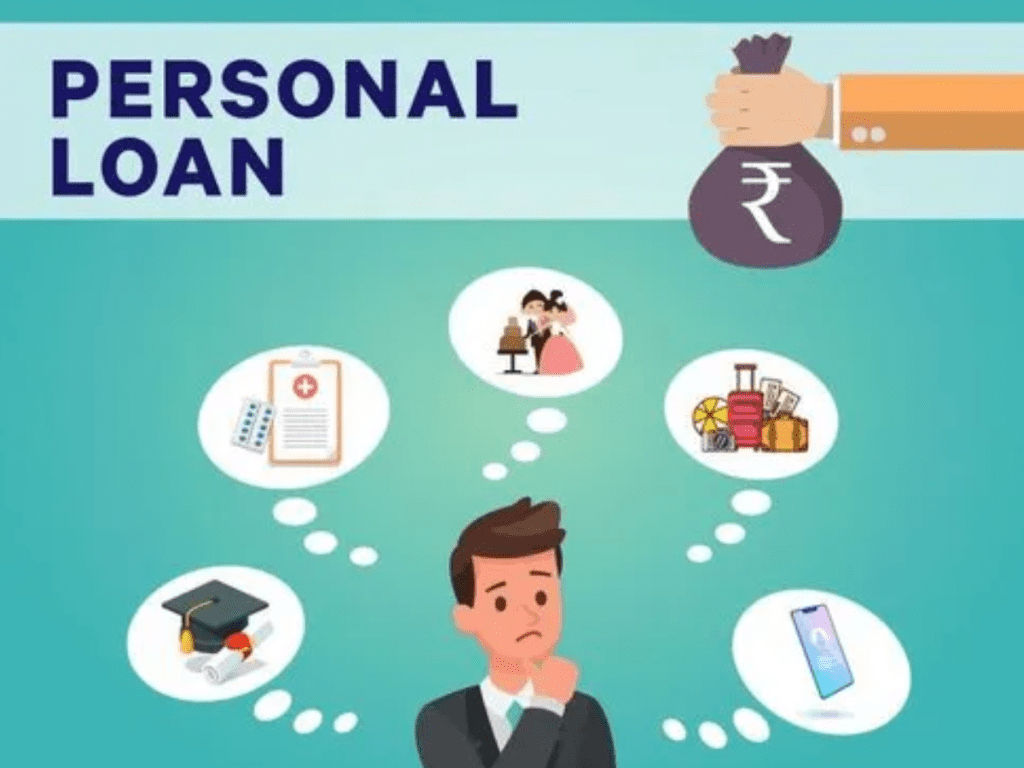Introduction
In the vast landscape of financial products, personal loans are often seen as a quick and convenient way to access funds for a variety of purposes. However, before jumping into a personal loan agreement, it’s crucial to evaluate whether they are worth it for your specific financial situation. Understanding their advantages, disadvantages, and the factors to consider can help you make an informed decision.
In this article, we’ll explore the benefits and drawbacks of personal loans, compare them with home loans/mortgages, and provide a comprehensive guide to help you decide whether a personal loan is the right choice.
What Are Personal Loans?
Personal loans are unsecured loans that you can use for virtually any purpose, from consolidating debt to covering medical expenses or funding a vacation. Unlike secured loans, personal loans do not require collateral, making them accessible to a wider range of borrowers. Typically, personal loans come with fixed interest rates and repayment terms ranging from one to seven years.
Advantages of Personal Loans
1. Flexibility
Personal loans can be used for a wide variety of purposes, such as:
- Consolidating high-interest credit card debt.
- Financing home renovations.
- Covering emergency medical expenses.
- Paying for weddings or other significant events.
This flexibility makes them a versatile financial tool.
2. No Collateral Required
Unlike home loans or car loans, personal loans are unsecured, meaning you don’t need to pledge assets like your house or car. This reduces the risk of losing valuable property in case of default.
3. Fixed Interest Rates
Most personal loans come with fixed interest rates, which means your monthly payments remain consistent throughout the loan term. This predictability makes it easier to budget.
4. Quick Approval Process
Personal loans often have a faster approval process compared to other types of loans. Many lenders offer online applications and instant decisions, with funds disbursed within a few days.
5. Debt Consolidation
If you have multiple high-interest debts, a personal loan can help you consolidate them into a single loan with a potentially lower interest rate. This simplifies repayment and can save money in the long run.
Drawbacks of Personal Loans
1. Higher Interest Rates
Personal loans often come with higher interest rates compared to secured loans like home loans. Borrowers with lower credit scores may face even higher rates, making the loan more expensive.
2. Shorter Repayment Terms
While shorter repayment terms can help you pay off the loan faster, they also mean higher monthly payments. This can strain your budget if not planned carefully.
3. Fees and Charges
Some personal loans come with origination fees, prepayment penalties, or late payment fees. These additional costs can make the loan less affordable.
4. Impact on Credit Score
Taking out a personal loan can affect your credit score in several ways. While timely payments can improve your score, missed payments or high debt levels can hurt it.
5. No Tax Benefits
Unlike home loans, personal loans do not offer tax benefits. Interest paid on personal loans is not tax-deductible, which may be a disadvantage for some borrowers.
Comparing Personal Loans and Home Loans/Mortgages
While personal loans and home loans serve different purposes, it’s helpful to compare their features to understand which one might be more suitable for your needs.
| Feature | Personal Loans | Home Loans/Mortgages |
|---|---|---|
| Collateral | Not required | Required (your home) |
| Interest Rates | Higher (typically 6-36%) | Lower (typically 3-7%) |
| Repayment Terms | Shorter (1-7 years) | Longer (15-30 years) |
| Approval Time | Faster (1-7 days) | Slower (2-4 weeks) |
| Tax Benefits | None | Tax-deductible interest (in most cases) |
| Purpose | Flexible | Home purchase, construction, or refinance |
Factors to Consider Before Taking Out a Personal Loan
1. Purpose of the Loan
Ask yourself why you need the loan. Is it for a necessary expense, like medical bills or home repairs, or a discretionary purchase, like a vacation? Personal loans are better suited for essential expenses that provide long-term value.
2. Interest Rates and Fees
Shop around and compare offers from multiple lenders to find the lowest interest rate and minimal fees. Even a slight difference in rates can significantly impact the total cost of the loan.
3. Your Credit Score
Your credit score will influence the interest rate and terms offered by lenders. Check your score beforehand and consider improving it if possible to secure better rates.
4. Repayment Ability
Evaluate your financial situation to ensure you can comfortably manage the monthly payments. Use loan calculators to estimate your payments and avoid borrowing more than you can afford.
5. Alternative Options
Consider whether other financial products, such as a credit card balance transfer, home equity loan, or personal savings, might be a better solution for your needs.
When Are Personal Loans Worth It?
Personal loans can be a smart choice in the following situations:
1. Debt Consolidation
If you’re struggling with high-interest credit card debt, a personal loan can help you consolidate your balances into a single payment with a lower interest rate.
2. Emergency Expenses
For unexpected expenses like medical bills or urgent home repairs, personal loans can provide quick access to funds without tapping into your savings.
3. Improving Credit Score
Taking out a personal loan and repaying it on time can improve your credit score by demonstrating responsible borrowing behavior.
4. Major Life Events
If you’re planning a wedding or another significant event, a personal loan can help you cover the costs without depleting your savings.
When to Avoid Personal Loans
Personal loans may not be the best choice in the following situations:
1. Discretionary Spending
Using a personal loan to fund non-essential purchases, such as luxury vacations or expensive gadgets, can lead to unnecessary debt.
2. Unstable Financial Situation
If your income is uncertain or you’re already struggling with debt, taking on more debt with a personal loan can worsen your financial situation.
3. High Fees and Interest Rates
If you’re offered a loan with exorbitant fees and interest rates, it’s better to explore alternative options or delay borrowing until you qualify for better terms.
Tips for Choosing the Right Personal Loan
- Compare Lenders: Research multiple lenders, including banks, credit unions, and online platforms, to find the best rates and terms.
- Read the Fine Print: Understand all terms and conditions, including fees, penalties, and repayment policies, before signing the agreement.
- Prequalify: Use prequalification tools to check your eligibility and potential interest rates without affecting your credit score.
- Borrow Only What You Need: Avoid borrowing more than necessary to minimize debt and interest costs.
- Create a Repayment Plan: Budget carefully to ensure you can make timely payments and avoid default.
Final Thoughts
Personal loans can be a valuable financial tool when used responsibly. They offer flexibility, quick access to funds, and the potential to consolidate debt or cover unexpected expenses. However, they also come with higher interest rates and fees compared to secured loans. By carefully evaluating your needs, comparing offers, and considering alternative options, you can determine whether a personal loan is worth it for your financial situation.
Ultimately, the key to making a personal loan work for you lies in understanding the terms, borrowing only what you need, and ensuring that repayment fits comfortably within your budget. With careful planning, a personal loan can help you achieve your financial goals without unnecessary stress or risk.

